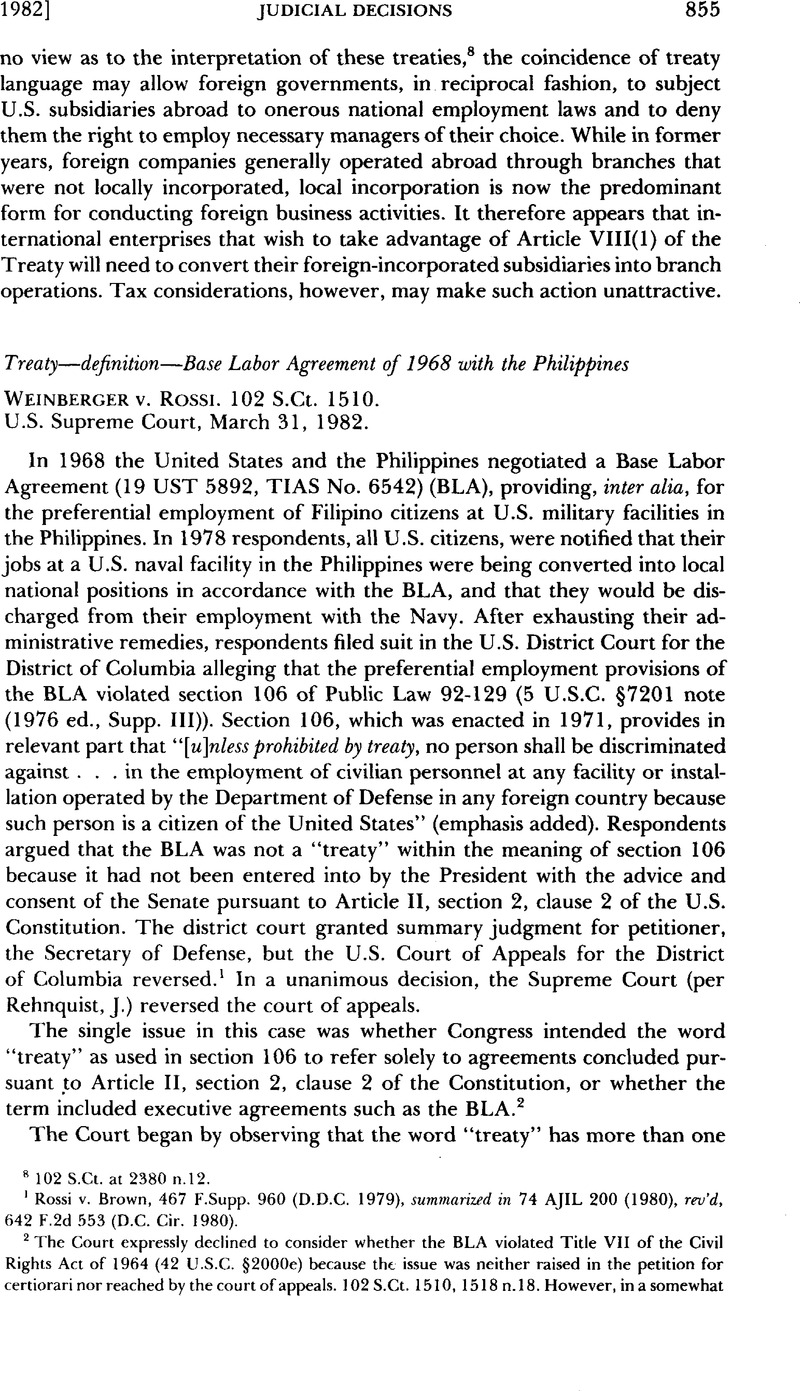Article contents
Weinberger v. Rossi. 102 S.Ct. 1510
Published online by Cambridge University Press: 27 February 2017
Abstract

- Type
- Judicial Decisions
- Information
- Copyright
- Copyright © American Society of International Law 1982
References
1 Rossi v. Brown, 467 F.Supp. 960 (D.D.C. 1979), summarized in 74 AJIL 200 (1980), rev’d, 642 F.2d 553 (D.C. Cir. 1980).
2 The Court expressly declined to consider whether the BLA violated Title VII of the Civil Rights Act of 1964 (42 U.S.C. §2000e) because the issue was neither raised in the petition for certiorari nor reached by the court of appeals. 102 S.Ct. 1510, 1518 n. 18. However, in a somewhat related case decided this term, the Supreme Court analyzed a potential conflict between Title VII and the preferential employment provisions of an Article II treaty. See Sumitomo Shoji America, Inc. v. Avagliano, 102 S.Ct. 2374, summarized at p. 853 supra.
3 102 S.Ct. at 1514. See, e.g., Vienna Convention on the Law of Treaties of 1969, Art. 2(1 )(a), reprinted in 63 AJIL 875, 876 (1969); Restatement of the Foreign Relations Law Of the United States (Revised), Introductory Note 3, at 74 (Tent. Draft No. 1, 1980).
4 At times in this opinion, the Court uses the term “Article II treaties” to refer exclusively to treaties entered into by the President pursuant to Article II, section 2, clause 2 of the Constitution.
5 39 U.S.C. §407(a), authorizing the Postal Service, with the consent of the President, to “negotiate and conclude postal treaties or conventions.”
6 102 S.Ct. at 1514, 1515. In this connection, the Court observed that “[i]t has been a maxim of statutory construction since the decision in Murray v. The Charming Besty, 2 Cranch 64, 117- 118 (1804), that ‘an act of congress ought never to be construed to violate the law of nations, if any other possible construction remains. . . .’ ” Id. at 1515.
7 The Court failed to state whether respondents were dependents of U.S. servicemen stationed in the Philippines, although at least one reference in the opinion (id. at 1513) suggested that they were.
8 Id. at 1513.
9 Id. at 1514 n.6. See 75 AJIL 954 (1981).
* This analysis was prepared by Marco C E. J. Bronckers, Member of The Hague Bar, the Netherlands.
- 1
- Cited by


